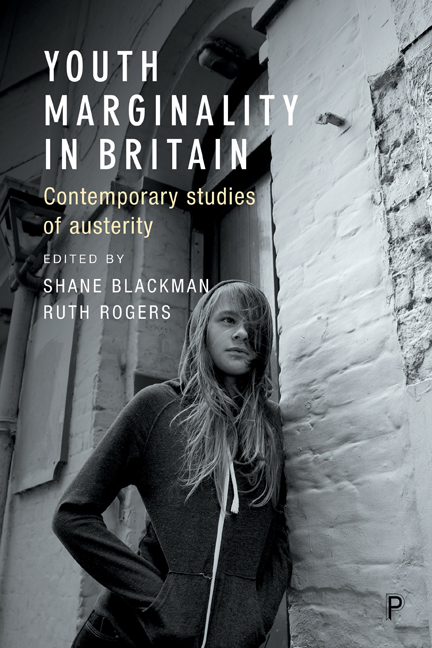seven - Leisure lives on the margins: (re)imagining youth in Glasgow's East End
Published online by Cambridge University Press: 05 April 2022
Summary
Introduction
Compared to previous generations, young people today have increased resources to engage in leisure, as well as a greater range of activities from which to choose. Changing patterns of education and employment may have extended the period during which young people are dependent on their family and the state, but they have also increased the period in which young people are able to prioritise their social interests and have comparatively high levels of discretionary spending (Roberts, 2014). As a result, some sociologists have argued that the relationship between youth leisure and ‘old’ social divisions, such as class and place, have weakened (for example, Bennett, 2000; Miles, 2000; Muggleton, 2000) and that the leisure interests and activities of young people across the world have converged (Best and Kellner, 2003) as a result of the growth of globalised consumer industries and digital media.
There is also, however, a growing body of research which suggests that young people's leisure experiences continue to be shaped by local, place-based opportunity structures (Nayak, 2003; Pilkington and Johnson, 2003; O’Connor, 2005; Nilan and Feixa, 2006). In other words, while there is some evidence of convergence in young people's leisure interests, actual engagement in so-called ‘global youth culture’ remains stratified by structural factors (Ball et al, 2000), including neighbourhood of residence (Shildrick, 2006). Young people from marginalised communities, for example, are often ‘leisure poor’ due to a combination of financial constraints and lack of local provision (MacDonald and Marsh, 2005; Byrne et al, 2006).
The following chapter explores experiences of leisure among marginalised youth in the East End of Glasgow. The data presented, drawn from qualitative interviews and focus groups with young people aged 15 to 25 years, highlight the relative immobility of young people's leisure lives, which are primarily located in and around the family home. Declining participation in street-based leisure is attributed to increasing surveillance and social control, by parents and police, but also to wider processes of market-led regeneration and the commercialisation of urban amenities. Against a backdrop of labour market restructuring and state funding cuts, young people in the East End lack the financial means necessary to participate fully in commercialised leisure lifestyles. Some cope with this by retreating into the private sphere, hanging out with friends at home and online; others, however, adopt creative strategies to enable them to engage in commercialised leisure, albeit in marginal ways.
- Type
- Chapter
- Information
- Youth Marginality in BritainContemporary Studies of Austerity, pp. 117 - 132Publisher: Bristol University PressPrint publication year: 2017

